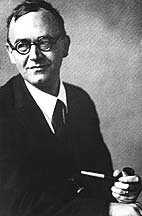2. Worth and Dignity of an Individual (Outwardly Focused Spirituality)

This world is our home. I have some reflections based upon the science of our time. I hope you will be patient with me. Even if you disagree with what I say about science, I hope the reflections on the providence of God and human responsibility and freedom will be challenging. The more scientists study the universe and the human body, the more aware we are that the human body truly belongs here. The significance of this is that we often sense our separation and alienation from each other and from nature. Although we have good reason to sense this as well, we need to grasp the significance of the fact that this world is our home. I want to discuss some science in this context. I know some elements of the Christian community want to argue with the science I am about to ...



